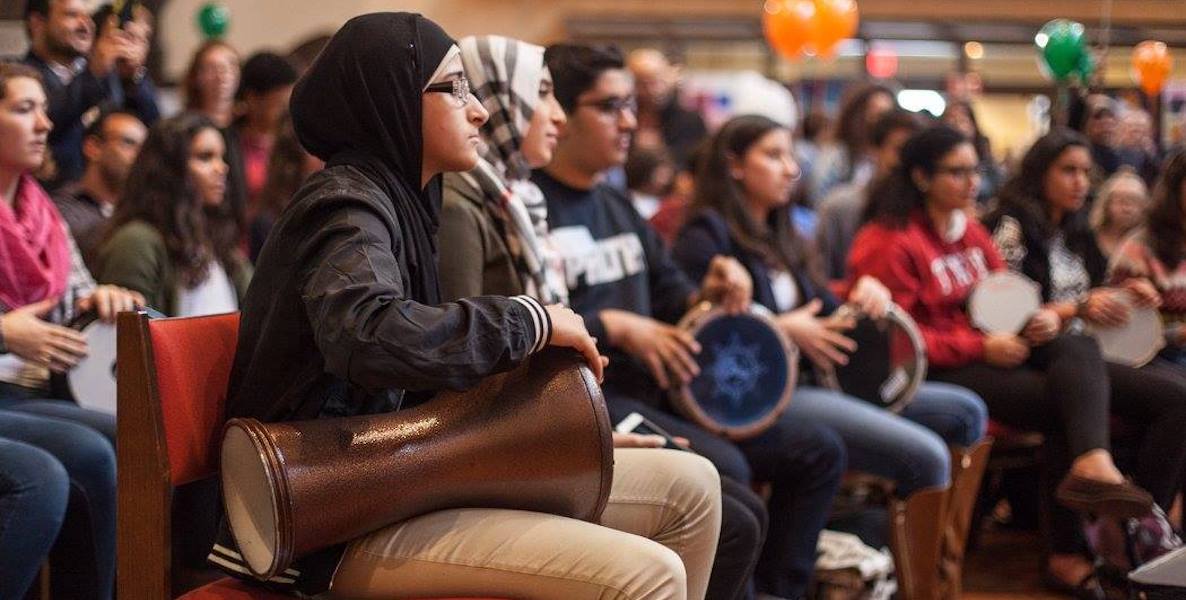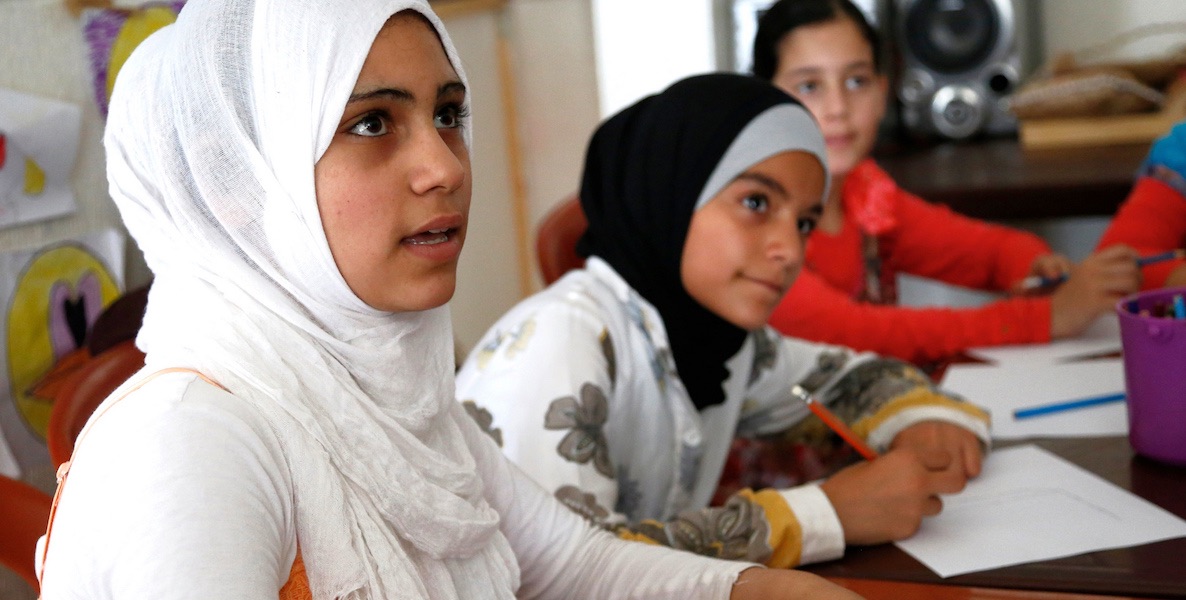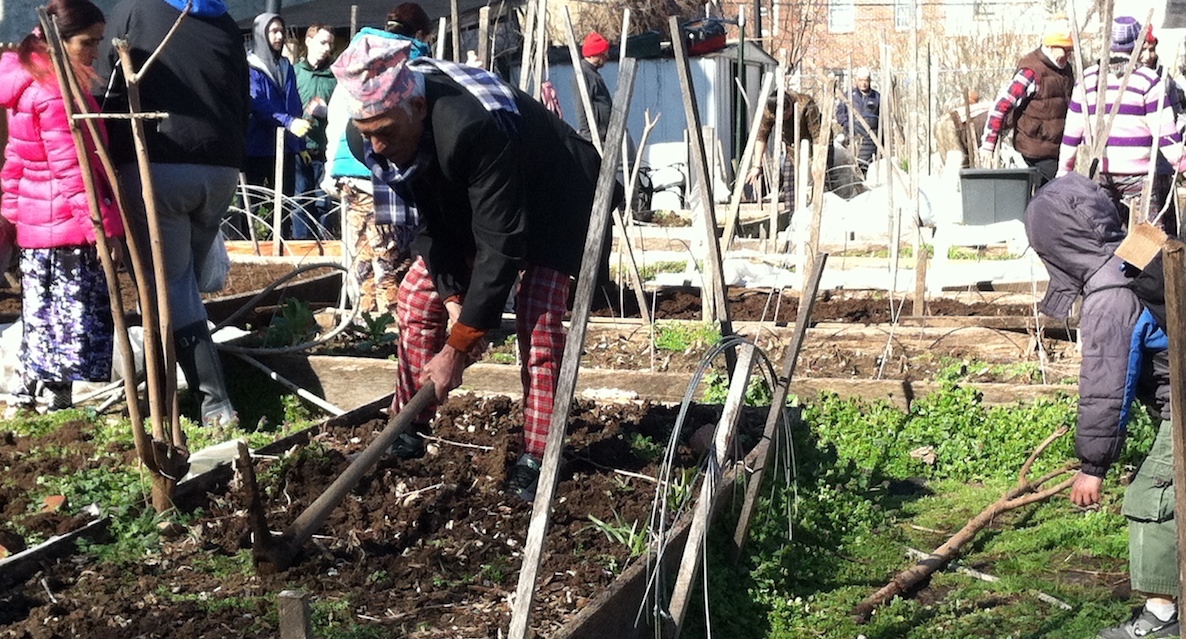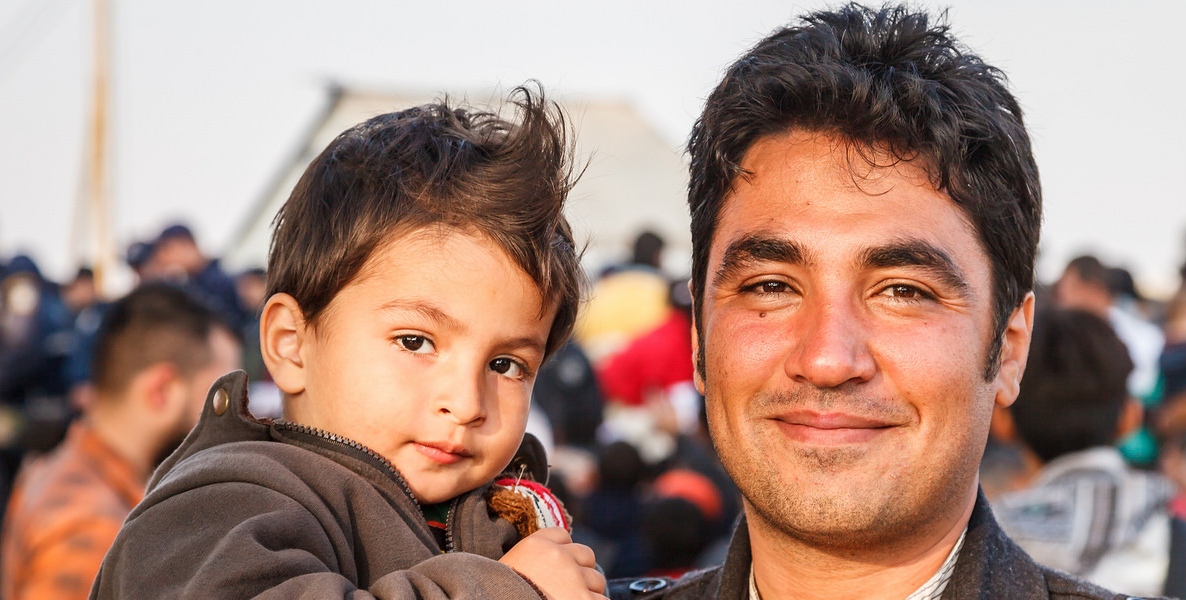A few weeks ago, at the Oinofyta refugee camp outside Athens, a seemingly-mundane—but also aggravating—crisis was brewing: The refugees needed new Crocs, the shoe of choice for the hot and dusty camp.
Be Part of the Solution
Become a Citizen member.Ordinarily, Do Your Part, a disaster relief organization coordinating efforts at Oinofyta, would appeal for donated shoes through its usual channels—Facebook, or Messenger—which might trigger a supply drive back in the United States. Gathering the supplies would take several weeks; shipping another six. By the time the shoes arrived at Oinofyta, it could be some three months later.
Instead, Do Your Part put the word out on NeedsList, a Philly-based tech start-up that allows people to virtually purchase supplies for refugee organizations from local suppliers through a model similar to an Amazon wish list. And the Crocs—all 500 pairs of them—were delivered to the camp by a local supplier within two weeks.
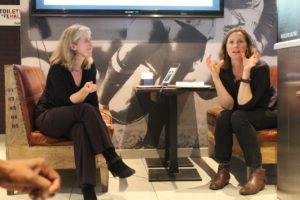
“We can bring stuff in from donations all over the world, and it helps,” says Lisa Campbell, executive director of Do Your Part, a US-based organization that formed after Hurricane Katrina. “But it helps even more if we get a ‘virtual container,’ letting us buy locally. Then we can get stuff faster, and cheaper, and respond to needs quicker—this week diapers, next week baby wipes. That’s what NeedsList does.”
NeedsList, which launches its full site in a few weeks, is like a virtual supply drive in which people give money for items rather than the items themselves. Groups vetted by NeedsList catalog their urgent needs, like shoes, sleeping mats, diapers, underwear, toiletries, clothes, the list goes on. Users from anywhere in the world can then donate money to purchase the items.
Once enough money has been raised to fulfill the need, NeedsList sends the money to a local merchant, who delivers the supplies. (The merchants, selected by a NeedsList coordinator in Greece, give the organization a group discount on their wares.) Donors can search by type of need; location; issue; type of person helping; and whether or not the donation is tax deductible in their country. And they can follow along as others donate money, the supplier is paid, and the items are delivered.
In a testing mode since last October, NeedsList has filled over 22,000 urgent needs—counting one pair of Crocs as one need—funded by almost 1,000 donors across the United States and Europe. When the full site goes up, it will have about 20 organizations, with over 100 searchable needs. (This weekend, for World Humanitarian Day, the site will feature a back-to-school needs list for Philly refugee students.)
“There’s an unbelievable groundswell of citizen engagement and support for refugees in Europe,” says Levinson. “But the needs are completely overwhelming. We are helping donors send actual items to actual people.”
“There’s an unbelievable groundswell of citizen engagement and support for refugees in Europe,” says Amanda Levinson, co-founder and Chief Operating Officer of NeedsList, who is based in Philly. Her partner, Natasha Freidus, lives in France, where she has worked with refugees firsthand for the last several years. “But the needs are completely overwhelming. We’re creating a marketplace for humanitarian aid that allows suppliers and nonprofit and donors to get the right things to the right people at the right time. We are helping donors send actual items to actual people.”
![]()
NeedsList is launching into a crisis of epic proportions. According to the European Union, twice as many people fled to Europe in 2016 than in 2015, and over 65 million people worldwide need aid as a result of being forced out of their homes. So far this year, over 40 million people have been internally displaced because of war at home, and there are some 25 million refugees and asylum seekers worldwide. Greece has 62,000 refugees, about half of them from Syria; others are spread across Europe. Every day, people die trying to escape, like the seven people who drowned in July on their way to Turkey. And often they land in places that want them to disappear—like Paris, where hundreds of refugees in a tent city by a major metro stop are regularly raided by the police, who throw out all their belongings. “We’re dealing with the politics of exhaustion,” says Levinson. “People just give up.”
Here in the Unites States, it doesn’t feel real or urgent because we rarely glimpse this mass migration of humans, particularly now, when all eyes are on the White House. Doing so can be a terrifying look at the despair, destitution and utter depravity of human beings—particularly when there seems no real way to help, from such a distance. It can also be a heartening look at human capacity to give. NeedsList brings that ability directly to all of us.
Levinson—who notes that displaced people are everywhere, even in our own city—is herself a migrant of sorts. She grew up in Denver, then spent the next 20 years criss-crossing the country—college in Portland, followed by work with day laborers in Oregon, where she co-founded a nonprofit to help establish worker rights; graduate school in public policy at UT-Austin, where she met her husband, followed by a year in Chile working on migration issues; a year in Boston, and then six years in the Bay Area, while her husband went to grad school at Stanford. In the Bay Area in the mid oughts, Levinson was at ground zero for the birth of social media, working for a nonprofit trying to figure out how to leverage technology for social change. It was her first introduction to the way tech can have a grassroots impact.
Here in the Unites States, we rarely glimpse this mass migration of humans, particularly now, when all eyes are on the White House. Doing so can be a terrifying look at the despair, destitution and utter depravity of human beings—particularly when there seems no real way to help, from such a distance. It can also be a heartening look at human capacity to give. NeedsList brings that ability directly to all of us.
Levinson, 41, moved to Philadelphia two years ago, around the time that the refugee crisis in Europe was exploding. Levinson reconnected online with Friedus, an old friend from Boston, when both happened to join a group of digital workers looking for a way to use technology to help refugees. Often, that took the form of an app, with refugees as the intended user; some were well-designed, but often had no context for how those refugees were living, or what their real immediate needs were, or if they even had a way to access it.
Freidus and Levinson decided they wanted to do something different. For nearly a year, they worked with other technologists to develop a giant database of organizations doing work in Europe, the first of its kind to really map the continent’s response to the crisis. It was a window into how the world of refugee organizations operate. Groups like Do Your Part stay in touch with each other, and with their supporters, through Facebook, WhatsApp and Messenger, where they talk about what’s happening in their camps, ask for advice, offer suggestions, post needs. But with groups scattered throughout Europe, even that communication wasn’t enough to get supplies to where they could be used.
![]()
“Needs change everyday,” Levinson says. “People need to be taken to doctors appointments, or given food or clothing or whatever. They’d put it out on Facebook, and people would bring clothing—but it’s the wrong size, or they’re getting too much at once, or not what they asked for.”
Back home, Levinson saw a similar thing happening. A local group holding a supply drive can take weeks to gather items from the community. They also need to raise $6,000 for shipping to Greece. By the time refugees get the donations, the stuff is often not needed anymore. And, all too often, it’s not appropriate. Campbell says she has received tons of used, ripped and stained clothes, high heels, tank tops—all things not needed by Muslims in a refugee camp. As a result, groups like Do Your Part throw out around two-thirds of in-kind donations that they receive.
“We have tons of people who want to help, but don’t know how to do so effectively,” Levinson says. NeedsList provides a crowdfunding solution simple and familiar enough for both refugee groups and donors to use—though operationally, it was complex to get all the parts in place. “Tasha and I spent a lot of time making sure no one was doing this already,” Levinson says. “You’d think someone would have already come up with it.”
![]()
NeedsList launched a prototype in October and a beta version in June, with a rotating list of three urgent needs from partners working in Greece. As much as possible, they work with local merchants to send the supplies, thereby also helping the local economy—a particular benefit in Greece, which was financially broken even before the influx of refugees. “The local economy misses out when people send supplies from elsewhere,” Levinson notes.
Greece—the epicenter of the refugee crisis—is just the jumping off point for NeedsList. The intent is to spread worldwide, and become a site for all kinds of humanitarian needs, from natural disasters to local or remote volunteer opportunities. Already, the group has begun working with two Philadelphia organizations, HIAS and Nationalities Services Center, groups that work to provide homes and introduce refugees to Philadelphia. HIAS, for example, put out a call for volunteers for guides, childcare and ESL tutors—all of which were filled on the site. Next, it will expand to northern France, Italy and the Balkans.
In a testing mode since last October, NeedsList has filled over 22,000 urgent needs funded by almost 1,000 donors across the United States and Europe. When the full site goes up, it will have about 20 organizations, with over 100 searchable needs.
NeedsList is a for-profit public benefits corporation, a legal designation that requires companies to operate with a “double bottom line”—profits and social impact. This allows NeedsList to seek venture capital—including $25,000 from Ben Franklin Technology Partners and $100,000 from Catapault Accelerator—to help them scale more quickly to meet the humanitarian needs worldwide, and to not compete with their clients for funding.
The business model is similar to that of GoFundMe or other crowdfunding sites. NeedsList take a 6 to 10 percent commission from every supplier for bulk sales; for cash donations, they take a 3 percent commission. (For comparison, GoFundMe takes around 8 percent, including fees.) Levinson says they also plan to charge for corporate sponsorships, providing specialized lists for businesses to fulfill their corporate responsibility, and may offer premium features for a fee to larger nonprofits. She says they hope to break even by the middle of 2019.
Long after this particular refugee crisis has abated, NeedsList will still have plenty of business—climate change alone means ever increasing natural disasters, wars and displacement. For now, though, we have this. It’s about time we did something about it.
“The needs are so apparent and so acute,” Levinson says. “Society has to find a way to support these desperately needy people. We want to be that, the go-to for humanitarian aid. The need is not going to go away.”
Header Photo: Phillip Taylor King for Flickr


